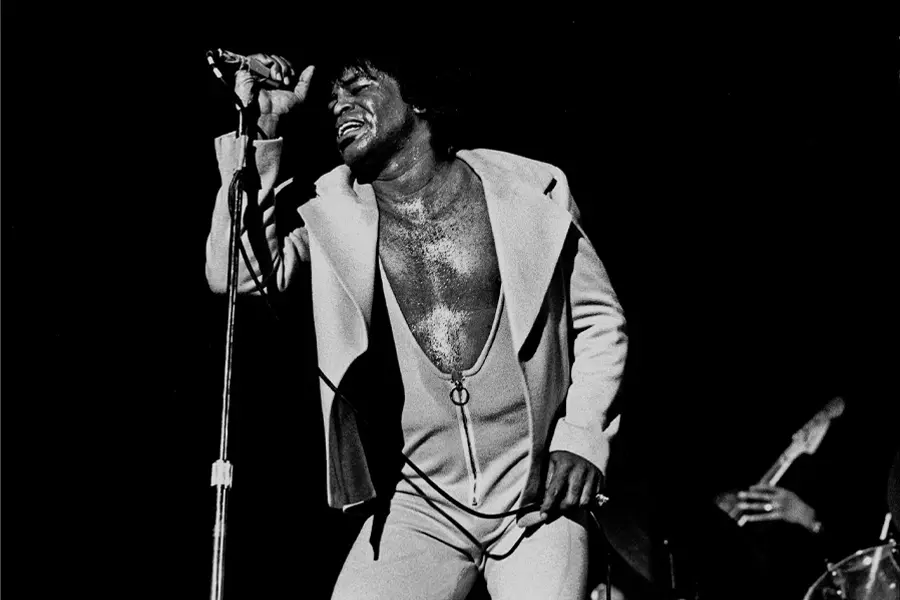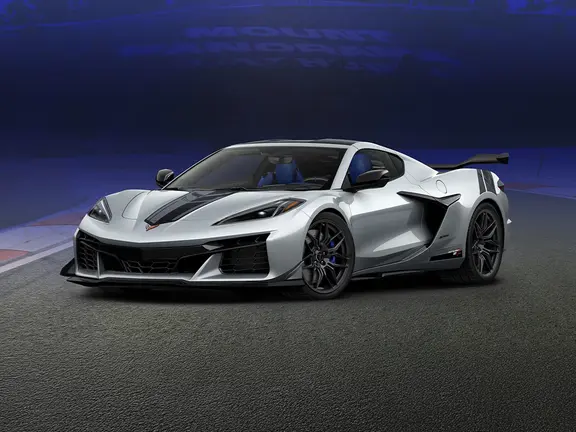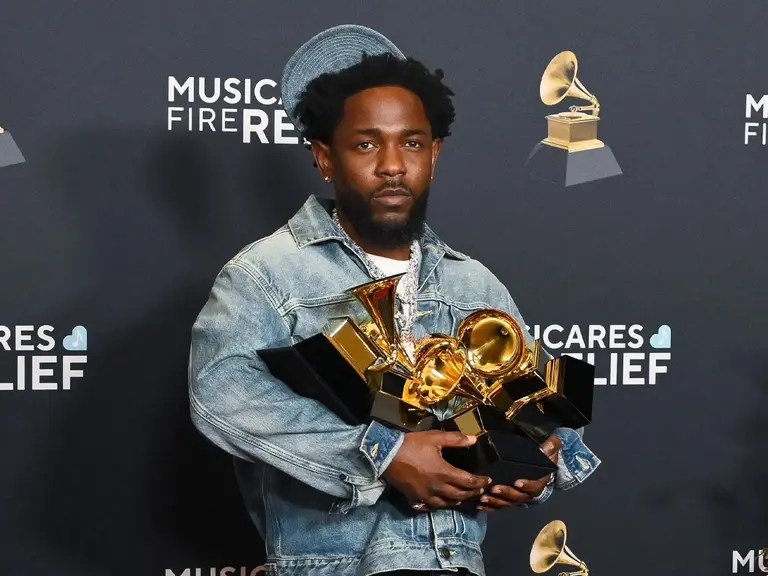
Published:
Readtime: 10 min
Every product is carefully selected by our editors and experts. If you buy from a link, we may earn a commission. Learn more. For more information on how we test products, click here.
For years, black artists have paved the way for massive cultural and societal change. From Muddy Waters and Chuck Berry birthing the early days of rock ‘n’ roll, to the revolutionary sound of Grandmaster Flash & The Furious Five, artists of colour have pushed the boundaries of what is considered popular music. But more than just introducing new sounds and genres, black artists have become the catalysts for tremendous growth, providing the soundtrack for anti-racism movements and progressive social change.
More than ever, recent years have highlighted the importance of cultural equity. Over 50 years since Sam Cooke sang A Change is Gonna Come, several communities are still waiting. The death of George Floyd prompted a major global movement that continues, and protest songs and tales of growth remain as relevant as ever. To show our support, we’ve put together this list of black anthems written, created and performed by groundbreaking artists and studios. Of course, there are hundreds more out there, but with emotions still raw, this playlist is less empowerment and more essential listening.
1. A Change is Gonna Come – Sam Cooke
- Artist: Sam Cooke
- Released: 1965
- Genre: Soul
- Recorded: January 30, 1964
- Label: RCA
- Songwriter: Sam Cooke
Sam Cooke’s iconic 1965 release A Change is Gonna Come has become the quintessential Black Lives Matter song. Inspired by true events in Cooke’s life, where he and his entourage were turned away from a whites-only motel in Louisiana, the hit details Cooke’s optimism for a stronger, more united world. The release marked a significant turn in Cooke’s career, taking him from a classy crooner to an outspoken civil rights activist. Unfortunately, Cooke never got to see the impact A Change is Gonna Come would have on the world, passing away before its release. Still, in his memory and those brave pioneers like him, the message lives on.
2. Fight the Power – Public Enemy
- Artist: Public Enemy
- Released: July 4, 1989
- Genre: Hip-hop
- Label: Motown
- Songwriter: Carlton Ridenhour, Eric Sadler, Hank Boxley, Keith Boxley
When American hip-hop group Public Enemy burst on to the scene, their arrival caused headlines. The outspoken act was not afraid to have their voices heard, disrupting the status quo in the process. Fight the Power was recorded in 1989 at the request of filmmaker Spike Lee as the lead song for his iconic racially-charged movie Do the Right Thing. Tackling issues of racism and oppression, Fight the Power became a theme for a new generation of equality advocates. The song makes use of a number of samples, including civil rights exhortations, black church services and the music of James Brown.
3. F*ck tha Police – N.W.A.
- Artist: N.W.A.
- Released: August 9, 1989
- Genre: Rap
- Recorded: 1988
- Label: Priority/Ruthless
- Songwriter: Ice Cube, MC Ren, The D.O.C.
Like Public Enemy, rap group N.W.A. took things to a new level. The aggressive approach signalled a change in ideals. Black men and women were fed up with police brutality and profiling and were willing to stand up for their beliefs. The release was so provocative that the FBI wrote to N.W.A.’s record company expressing disapproval with the song’s lyrics, suggesting it misrepresented police. As the issue of police brutality again rears its head, the N.W.A. release is once again relevant.
4. Freedom – Beyonce ft Kendrick Lamar
- Artist: Beyonce
- Released: September 9, 2016
- Genre: Pop, Gospel, Hip-hop
- Recorded: 2014
- Label: Parkwood, Columbia
- Songwriter: Jonny Coffer, Beyonce, Carla Marie Williams, Dean McIntosh, Kendrick Lamar, Frank Tirado, Alan Lomax, John Lomax Sr.
The most poignant release from pop superstar Beyonce, Freedom blurs the lines between rap and pop. The powerful song speaks of truth, injustice and the plight of African-American rights. Beyonce performed Freedom as the opening number at the 2016 BET Awards, beginning with a voice-over of Martin Luther King Jr.’s I have a Dream speech.
5. Hell You Talmbout – Janelle Monae and Wondaland Records
- Artist: Janelle Monae
- Released: August 13, 2015
- Genre: Gospel
- Recorded: 2015
- Label: Wondaland Records
- Songwriter: Janelle Robinson, Nate Wonder, Charles Joseph II, Jidenna Mobisson, Roman GianArthur, Alexe Belle, Isis Valentino, George 2.0
Released in 2015, Janelle Monae’s protest song Hell You Talmbout is one of the more overt black anthems on this list. The song lists the names of various African-American people who died as a result of encounters with law enforcement and racial violence. Monae, along with Wondaland Records has since released an instrumental of the song, so that listeners can create their own versions.
6. Baltimore – Prince ft. Eryn Allen Kane
- Artist: Prince
- Released: 2015
- Genre: R&B
- Songwriter: Prince
After finding himself deeply affected by the death of Freddie Gray, Prince penned this powerful black protest song. The piece explains how systemic violence and racism has become a plight on the African-American culture, finishing with a direct quote from Price himself. “The system is broken. It’s going to take the young people to fix it this time. We need new ideas, new life…”
7. Took the Children Away – Archie Roach
- Artist: Archie Roach
- Released: 1990
- Genre: Folk
- Label: Aurora, Mushroom Records
- Songwriter: Archie Roach
Australia’s most powerful and influential Indigenous songwriter, Archie Roach’s Took the Children Away is a sad reminder of our fractured past. The song details the impact of the Stolen Generation on the Aboriginal community, an act that defied logic and destroyed lives. Roach’s ode is heartbreaking and raw.
8. This is America – Childish Gambino
- Artist: Childish Gambino
- Released: 2018
- Genre: Hip-hop
- Songwriter: Donald Glover
Donald Glover’s powerful message to the world shocked the American public when it was first released, however, years later, it remains relevant. The music video opens with a lengthy tracking shot, set to traditional, African-inspired music. However, the sudden gunshots shatter the illusion, launching the powerful message of police brutality and violence.
9. Black Man – Stevie Wonder
- Artist: Stevie Wonder
- Released: 1976
- Genre: Soul
- Songwriter: Stevie Wonder, Garry Byrd
Written about Wonder’s desire for worldwide interracial harmony, Black Man is a message for equality and peace. The lyrics refer to the Crispus Attucks, widely regarded as the first martyr of the American Revolution. According to legend, Wonder deliberately chose this theme as the US Bicentennial was underway at the time.
10. Mississippi Goddam – Nina Simone
- Artist: Nina Simone
- Released: 1964
- Genre: Soul
- Label: Philips Records
- Songwriter: Nina Simone
Revealed by Simone herself as her first “civil rights song”, Mississippi Goddam is a black anthem in every sense of the word. The song captures Simone’s response to the murder of Medgar Evers in Mississippi, along with the 16th Street Baptist Church bombing in Birmingham, Alabama. In 2019, Mississippi Goddam was selected by the Library of Congress for preservation in the National Recording Registry for being “culturally, historically, or aesthetically significant”.
11. Strange Fruit – Billie Holiday
- Artist: Billie Holiday
- Released: 1939
- Genre: Blues, Jazz
- Label: Commodore
- Songwriter: Abel Meeropol
Widely regarded as the greatest protest song ever written, Billie Holiday’s 1939 release Strange Fruit tackles racism and lynching in the US. Originally penned by Abel Meeropol in 1937, the confronting song uses metaphors that link a tree’s fruit to lynching victims. It has been called “a declaration of war” and “the beginning of the civil rights movement”
12. Treaty – Yothu Yindi
- Artist: Yothu Yindi
- Released: June 1991
- Genre: Pop, Indigenous
- Recorded: 1991
- Label: Mushroom, Razor
- Songwriter: Paul Kelly, Mandawuy Yunupingu, Stuart Kellaway, Cal Williams, Gurrumul Yunupingo, Milkayngu Mununggurr, Banula Marika, Peter Garrett
Written by Paul Kelly and Yothu Yindi, Treaty was the first song by a predominantly Aboriginal band to chart in Australia, and the first song in any Aboriginal language to receive extensive recognition. The song is written and performed in Gumatj, one of the Yolngu Matha dialects; a language of the Yolngu people of Arnhem Land. The song was originally released to highlight the lack of progress on the treaty between Indigenous Australians and the Federal Government.
13. The Story of O.J. – Jay-Z
- Artist: Jay-Z
- Released: June 30, 2017
- Genre: Rap
- Label: Roc Nation, Universal
- Songwriter: Shawn Carter, Dion Wilson, Nina Simone, Gene Redd, Jimmy Crosby
Released in 2017, The Story of O.J. touches on African-American culture, detailing the traditional and stereotypical roles within the black community. Most notably, the release explains how the black community is affected by money. The lead line “I’m not black, I’m O.J.,” references the idea that wealth and fame can transcend race. The song also features samples from Nina Simone’s hit Four Women.
14. Say It Loud – I’m Black and I’m Proud – James Brown
- Artist: James Brown
- Released: August 1968
- Genre: Funk
- Recorded: August 7, 1968
- Label: King
- Songwriter: James Brown, Alfred Ellis
The true theme for black empowerment at the height of the 1960s movement, James Brown’s Say it Loud is a song that remains as relevant today as it was when it was first released. The lyrics address the continuous prejudices faced by black people across America, advocating for black empowerment. The song’s call-and-response chorus has become a significant and iconic phrase in racial equality marches.
15. Changes – 2Pac
- Artist: 2Pac
- Released: October 13, 1998
- Genre: Rap
- Recorded: 1992
- Label: Amaru, Death Row, Interscope
- Songwriter: Tupac Shakur, Deon Evans, Bruce Hornsby
The 1998 song Changes from rap icon Tupac Shakur is an immersive tale of inner-city crime and racism. The lyrics reference the war on drugs, the treatment of black people by the police and the perpetuation of poverty among the urban African-American culture. Changes was released posthumously on his Greatest Hits album, continuing Tupac’s long-history of bringing urban issues to light in modern music.
16. No Lives Matter – Body Count
- Artist: Body Count
- Released: March, 2017
- Genre: Metal
- Label: Century Media
Political activists and actor Ice-T’s racially-motivated hardcore band Body Count had been dormant for some time, however, when racists starting clapping back to the Black Lives Matter movement with “All Lives Matter”, the group make a comeback. No Lives Matter is a brutal and violent message that is so loud, it simply cannot be ignored. The song begins with a monologue from Ice-T that explains why the All Lives Matter movement is a racist and insensitive response to a major global issue.
































Comments
We love hearing from you. or to leave a comment.